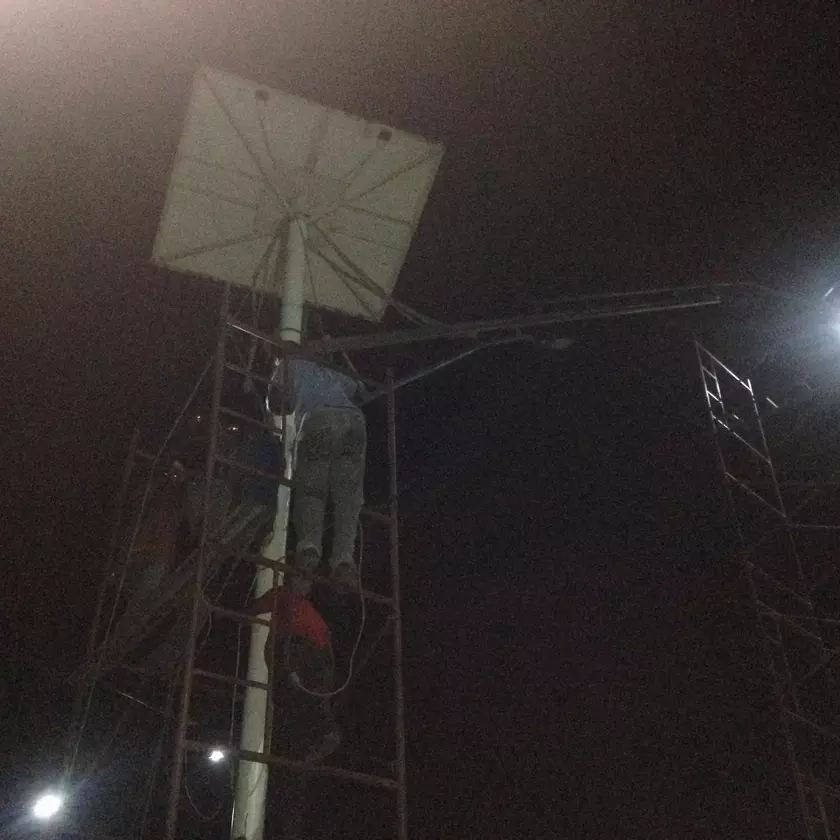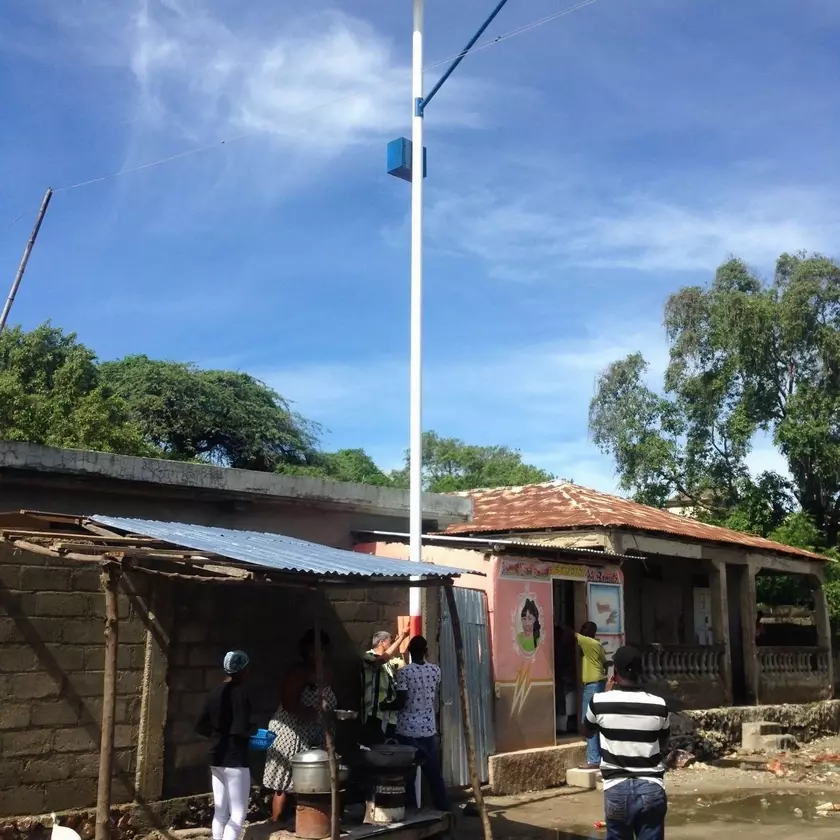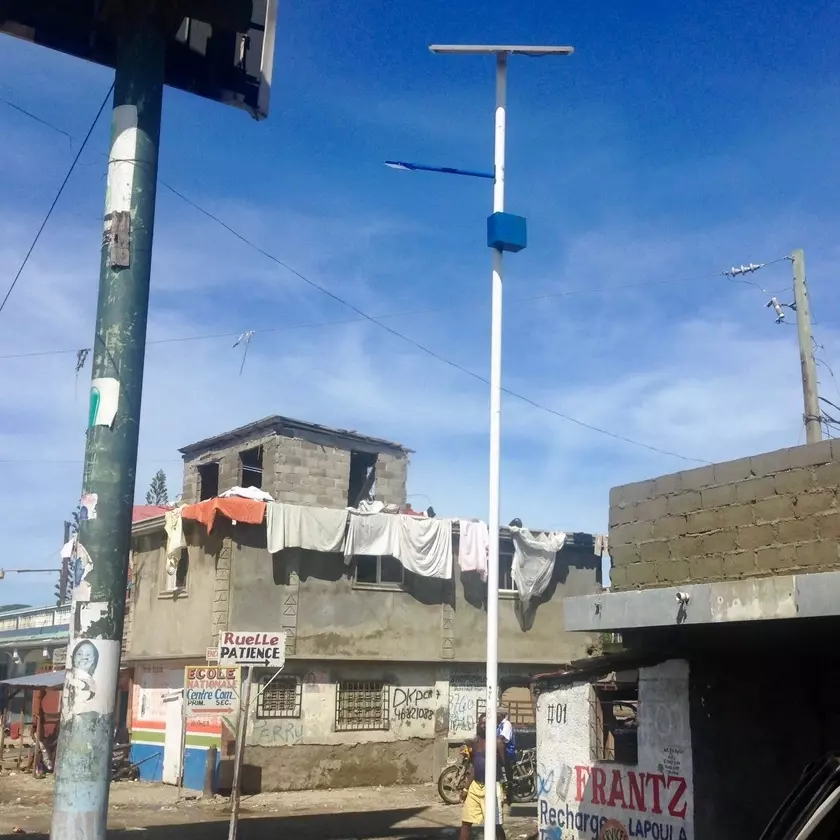Bringing Street Lighting to Cap Haitian
With all of the work carried out by HCBH it’s often easy to forget about some of the projects that HHA runs outside of the hospital in the local communities. Over the last year HHA has been working alongside the UN (or MINUSTAH as they are referred to in Haiti), on a project installing solar lights in Cap Hatien and the surrounding area. HHA have had the opportunity to lead on the completion of this project, monitoring the the final installation of the lights and assessing the impact it has had.
In total 113 lights have been installed over the last year, in areas across Cap Haitien itself and the surrounding residential areas including Limbé, Milot, Plaine du Nord and Quartier Morin. The project is run by the Crime and Violence Reduction unit of the UN in Haiti and it’s central aim has been to increase public safety during the night for people living in some of the most deprived areas around Cap Hatien.
During our time working on the project we’ve had the opportunity to go out into the areas the lights have been installed in to see the impact they’ve been having and to speak to people in the local communities about the benefits the lights have brought them. As well as talking about the increased sense of safety they felt walking through the areas with street lighting, it was noticeable that many of the streetlights now had businesses located underneath them. The new street lighting has meant that businesses are able to open later into the evening, providing a source of income less reliant on daylight hours. Small businesses selling food, drinks and day to day essentials are one of the most common forms of employment in Haiti, particularly for women.
One of the most important aspects of this project has been the aim to get local communities involved with its implementation. A major way in which this has been achieved has been through ‘sensitisation events,’ activities involving the communities where the lights have been installed. At the beginning of the project an opening ceremony was held with cultural activities. Throughout the project we have continued to hold focus groups within the local areas, inviting people to come and discuss ways in which the project can benefit them and how they can be more involved in the decision making process behind where the lights will be installed. With the UN in the process of leaving Haiti an important aspect of these focus groups has been finding ways to engage the local communities in the protection of the lights after their installation.
For people living in the UK and the States, street lights often become part of the background to our lives, something that is there but which we never really have to think about. Being able to walk to and from our school or work safely and drive in well lit streets at night is a luxury we perhaps don’t appreciate enough, and one people here definitely don’t take for granted.





